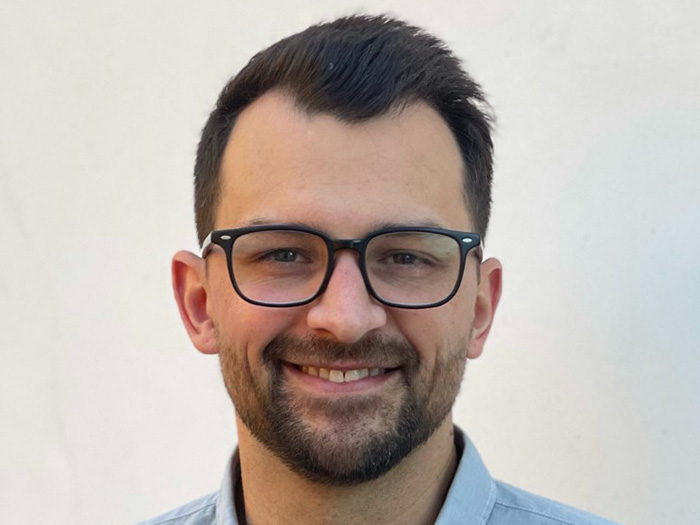A Disability Case Manager’s Tale: COVID, Case Management and Cancer

Three years ago, COVID-19 changed everything. We all remember very clearly the work-from-home mandates, the masking up, the sanitizing and cleaning craze.
COVID also changed the way disability case managers have had to approach their jobs.
“When we identify a COVID-positive case, we set up a disability case to be assigned and managed by a disability case manager,” explained Nicole Kunde-Bursey, disability case manager for Genex Services, an Enlyte company.
“Through that case, we talk with the employee, establish their medical care, determine the severity of the COVID case in addition to ensuring they are getting the right level of care in coordinating the testing and follow-up medical care with a doctor.”
At the beginning, when vaccines were in development and the novel virus required complete isolation, these case managers were often left on the outside. “We were not always able to see patients at the clinic if they had a positive test result. And so, we would coordinate care with a virtual telemed provider to continue their medical care if additional treatment was needed,” Kunde-Bursey said.
An influx of cases, uncertainty surrounding the virus and an inability to see patients face-to-face might trip up some, but not Kunde-Bursey. She has been approaching her work with the same level head as before the pandemic, getting her patients the care they need.
Her efforts earned her a 2022 Heart of Case Management Award, which recognizes case managers who have made the greatest impact on the injured employees they serve.
In that case, Kunde-Bursey played a pivotal role in helping a COVID-positive patient through his severe illness while also alerting his medical team to a deeper issue: a stage 3 lung cancer diagnosis.
Without her background in vocational rehabilitation and her understanding of medicine, this particular worker’s disease might have been overlooked. But luckily, Kunde-Bursey was on the case.
How This Patient Came Into Care
After his COVID diagnosis, this patient was admitted into the hospital. Kunde-Bursey was soon brought on as his disability case manager.
“I wasn’t able to speak with him while he was in the hospital, so I outreached to his family,” via information provided by the employer, she said.
As part of her case management philosophy, Kunde-Bursey makes sure to establish a relationship with those in her care. She takes the time to introduce herself, explain her role and talk through how short-term disability, family medical leave, COVID, telemed benefits and other aspects of case management come into play.
Since her patient was unable to speak with her, Kunde-Bursey established that relationship with his spouse: “I worked closely with her, addressing her questions and concerns, partnering with her in order to get EAP services for herself and her children, along with coordinating care for her husband.”
Kunde-Bursey also worked alongside internal hospital personnel to monitor her patient’s progress. He was having elevated blood pressure in addition to COVID, and that was something she wanted to address immediately.
“That can lead to bigger issues,” she said. “We coordinated getting him set up with a cardiologist to do routine testing to determine a treatment plan for that condition.”
But even after cardiac review, Kunde-Bursey saw there were still underlying medical issues that needed to be addressed. She set up a visit with a primary care physician, had routine labs run and issued a thorough workup to see what was happening.
That’s where she and the medical team saw more than COVID at play.
“We got him in front of a pulmonologist and then an oncologist,” she relayed. “That higher issue was his stage 3 lung cancer diagnosis.”
Cancer in a Claim
With the addition of a cancer diagnosis, this worker’s care plan had to change — and fast. Kunde-Bursey rolled up her sleeves and got to work.
“We were able to get a treatment plan set up for him so that we could try and lessen the progression of the stage 3 diagnosis,” she said. That included placing him in the care of an oncologist, setting up the correct procedures to slow progression and monitoring his health condition each day.
On the workers’ comp and claims side of this, Kunde-Bursey also helped set up long-term disability, got her patient an early referral to help him apply for social security disability income benefits and prepared his family financially for a less-than-positive outcome.
“Knowing he was going to be out long term, and knowing his medical condition, I worked closely with him and his family to identify, in case the condition progressed in a negative way, what benefits were available in case he were to pass away,” Kunde-Bursey said.
Cancer is a serious diagnosis without COVID. Having both placed this worker in a very serious predicament, not just in terms of his health but in terms of his family’s future wellbeing. Kunde-Bursey handled the situation delicately but firmly, keeping both the patient and his family informed while giving them the needed support as they dealt with the diagnosis.
She talked them through their life insurance option offered by the patient’s employer, including health care coverage for the family. She also made sure that all his paperwork was in on time and approved in order to set them up for the future.
“We were able to get him approved for social security disability income before the end of that five-month wait period,” she said. “By doing that, we helped prevent any overpayment, which can cause undue hardship for an employee who is disabled.”
Eliminating that stressor was her goal. Being proactive about his options made it all the easier.
The Claim Today
It’s been a long and difficult road for the patient — as would be expected with any cancer diagnosis. Kunde-Bursey is grateful he has a case manager on his side.
“We build relationships with the employee. We speak with them frequently, so that they feel comfortable talking about what’s going on or asking questions,” she said.
Kunde-Bursey is no longer the direct case manager on this claim, since her patient has transitioned from short-term disability to long-term, however she was able to get him and his family started on this journey, enabling a smooth transition.
And though she isn’t his direct contact, “I’m still here, and I’m still a resource for them. They can call me at any point to address questions or issues.”
The patient has had setbacks, but his treatment remains ongoing.
How a Case Manager Changes the Game
Case managers play a major role in claims, sometimes big and sometimes small. In this instance, Kunde-Bursey’s ability to identify a secondary medical issue helped get this patient the early intervention needed to slow the progression of his cancer.
“Case managers really are the heart of the case in regards to helping an employee by ensuring they are getting proper medical care,” she said.
COVID itself is a complicating factor to case management, and any time a patient presents with the virus, case managers must review how underlying conditions might impact the claim.
It starts with logistics — like understanding where exposure took place, coordinating with HR and other safety leaders to determine other workers who came in close contact, addressing the need for isolation if applicable and more.
But it also leads to reviewing a worker’s total health and how secondary issues might interact with a COVID diagnosis.
“With COVID cases, you look more closely at their comorbidities to see what may impact the recovery from COVID, and you look closely at hospitalizations, along with any secondary issues from COVID, such as pulmonary issues, like this case, cardiac issues, neurological issues,” Kunde-Bursey said.
“As a case manager, our goal is to provide early intervention, support common case management practices, ensure that the employee is aware of the benefits available to them, and try to ensure that we get them back to work.” &











